Overcoming poverty in Tanzania through livelihoods
Hundreds of families are being dragged out of poverty with a livelihood programme to support some of the poorest and most vulnerable women in rural Tanzania.
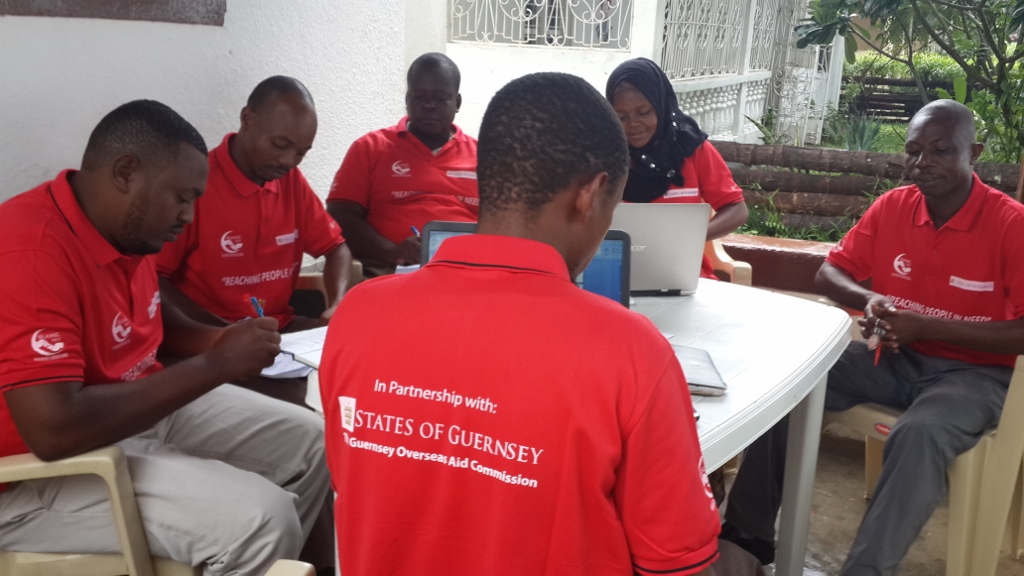
The work, implemented by Islamic Help and funded by the Guernsey Overseas Aid Commission, is aimed at empowering 300 women - half of them widows - to move towards self-sufficiency. The beneficiaries received training and were provided with livestock, beehives or poultry to help them set up income generation activities which will have the long term benefit of increasing their household incomes and improve the quality of their lives.
The programme has centred on Pangani, one of the poorest districts in Tanzania, where a needs assessment by Islamic Help showed that more than 85% of the population was surviving on less than one dollar (approx. 70p) per day.
Potential beneficiaries in eight villages were selected based on a needs criteria and in consultation with local village council and community leaders. The project included:
• the production of a simple to read handbook in Swahili
• the formation of 10 self-help groups to exchange information, ideas and best practices
• 100 backyard ‘bee farms’ of 200 beehives were set up and are expected to produce their first harvest this spring
• each family with a bee farm is expecting approximately 30 litres of honey with a market value of $210 (approx. £150)
• another 100 women each received 2 female goats and 1 male goat for breeding
• another 100 beneficiary families received 12 egg laying hens and a rooster each.
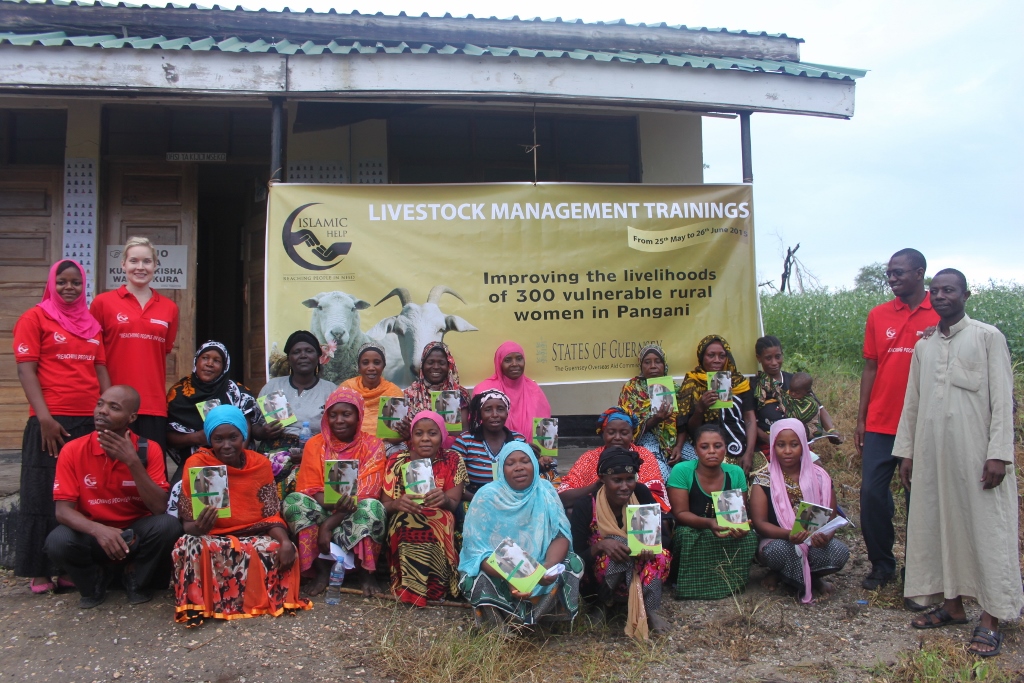
While 300 women were selected to directly benefit from the project, the number of indirect beneficiaries was estimated at more than 1,200. The main selection criteria was household income (the poorest were chosen); disabilities or HIV/Aids; women heading households or responsible for extensive families; those with disabled children; homeless or landless, or widows lacking any support.
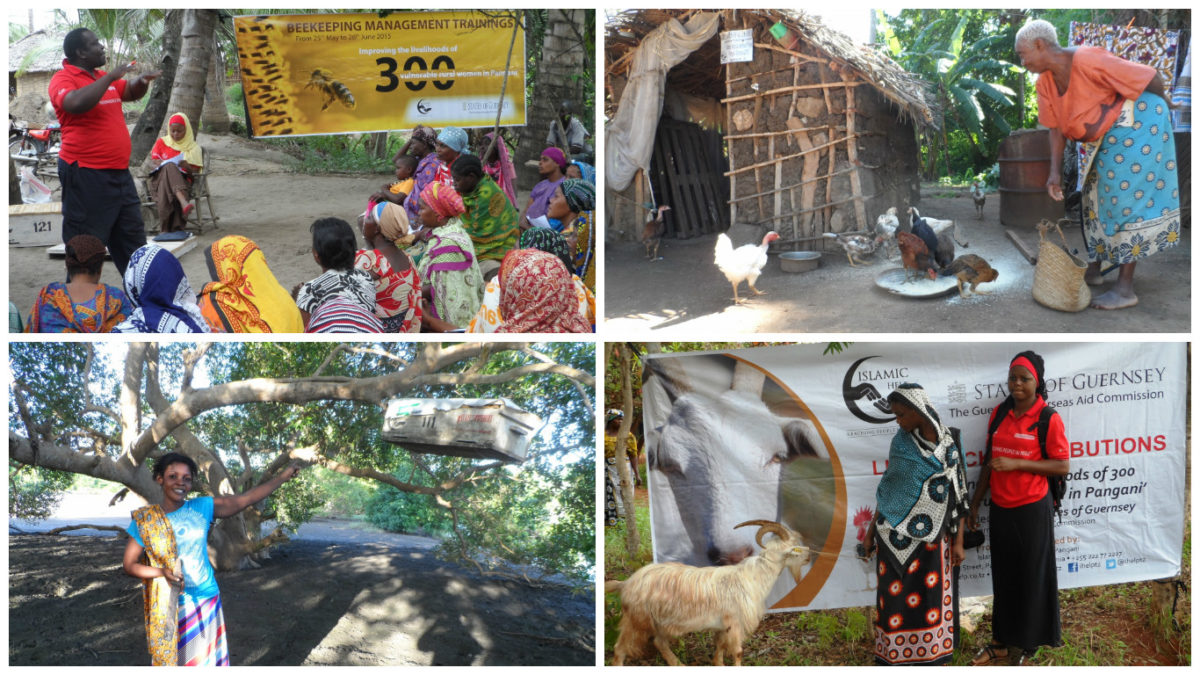
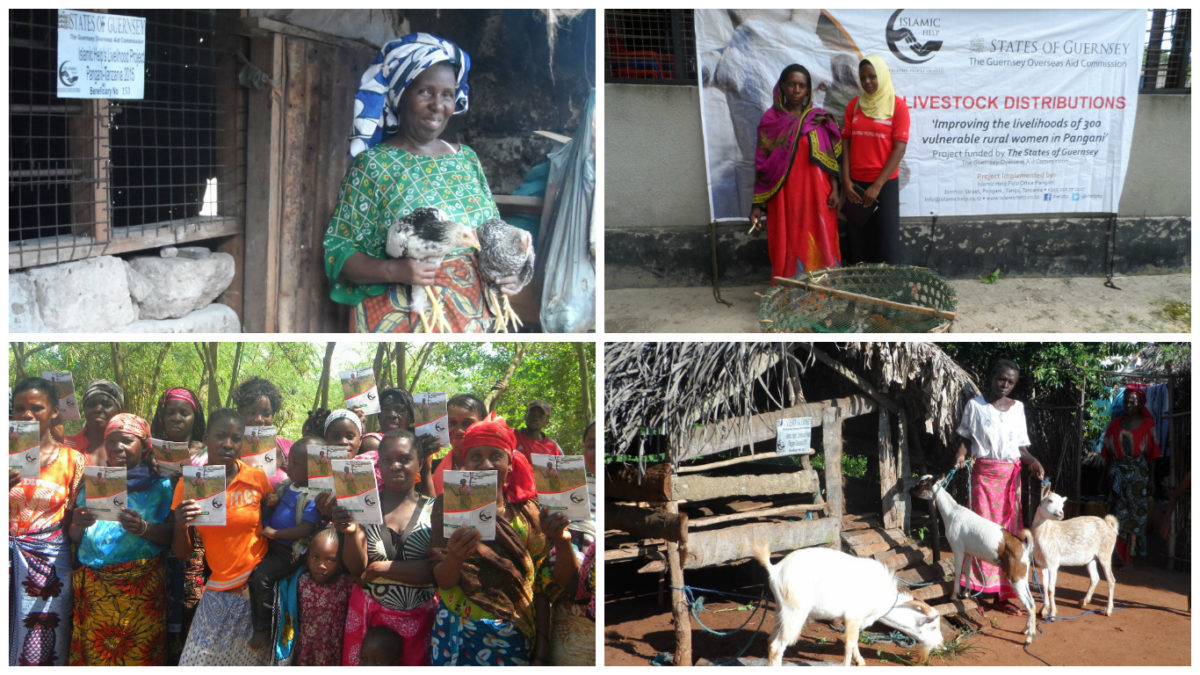
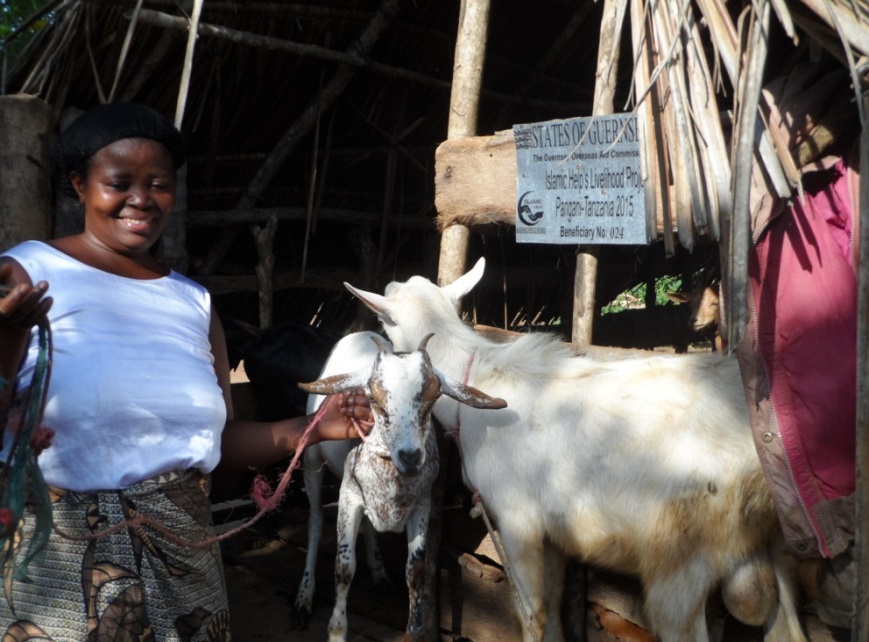
Among the beneficiaries is Edita Silvester (left), a 39 year-old with HIV who has to care for her 5 children and ailing mother on her own.
Facing social discrimination because of her HIV status, she had no regular source of income and was surviving on collecting coconuts in farms, and working as a tenant during harvesting time. She received training and 3 goats to start a small business of keeping livestock.
“Training opened my mind that I can do a lot with little, we have plenty of space and land to keep goats,” she said.
“Goats reproduce quickly and I can make 10 goats out of 3 goats in 2 year time, and I will be able to earn sufficient to build my future”. Edita said her hope was to be able to send all her children to school and provide them with good clothes and shoes.
Saleh Pamba, the Member of Parliament for Pangani District, said: “This project is a great relief to the poor widows of Pangani, who are living in miserable conditions. I hope it will go a long way in building their livelihoods and lifting them out of extreme poverty.”
Help us combat poverty and provide the means for communities to live in dignity and respect. Donate today.



